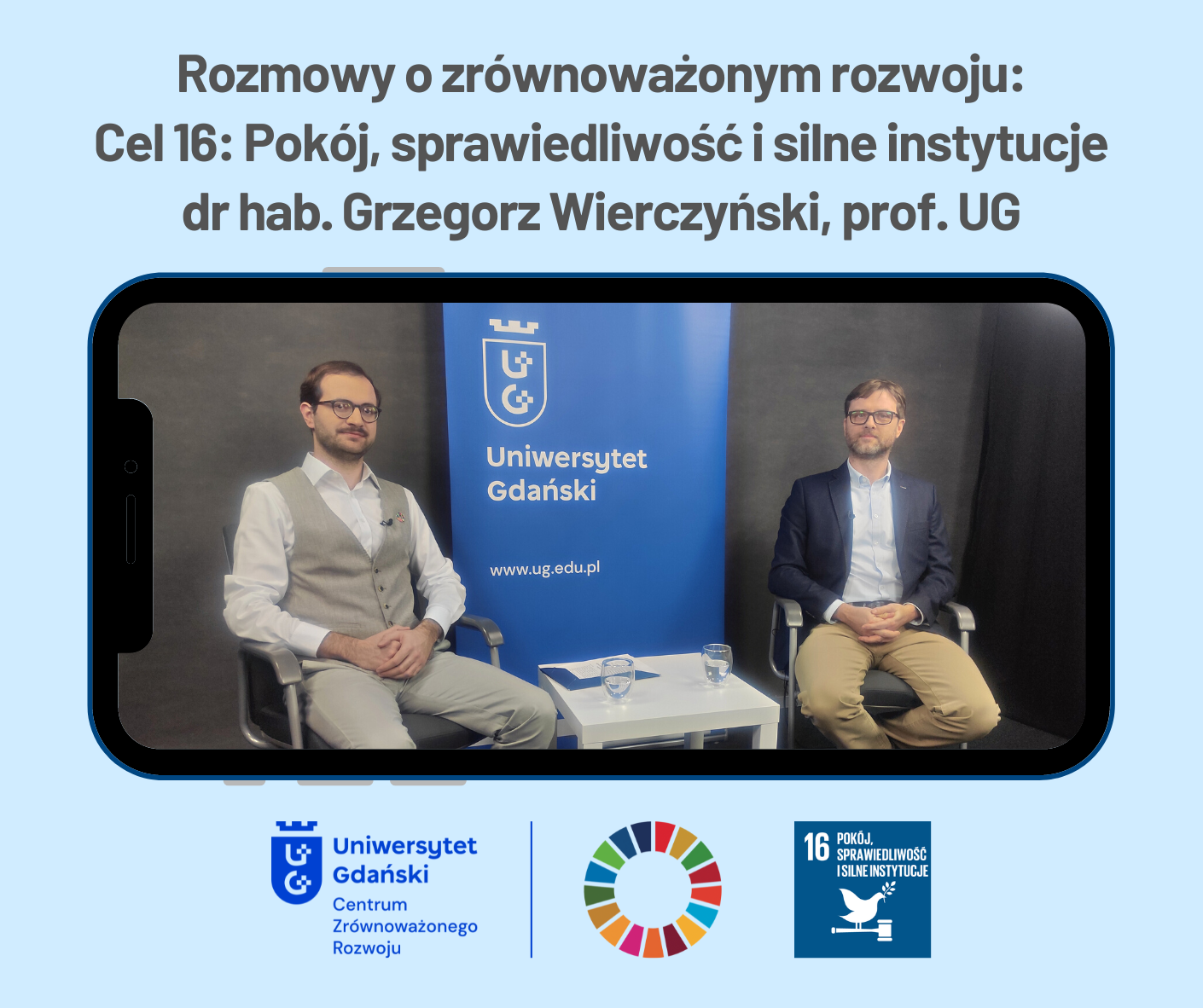– We can only deal with law when society lives in peace. In times of war, laws become worthless pieces of paper, says Grzegorz Wierczyński, PhD, DSc, Prof of the UG, lawyer, Head of the Chair of Legal Informatics at the Faculty of Law and Administration of the University of Gdańsk in an interview in the series University Discussions about Sustainable Development of the Centre for Sustainable Development of the University of Gdańsk. We invite you to watch the video.
The interview with the Head of the Department of Legal Informatics focused on the 16th Sustainable Development Goal: peace, justice and strong institutions. The interview was conducted by CZRUG intern Aleksander Piskorz. Grzegorz Wierczyński, PhD, DSc, Prof of the UG, answered, among others, questions on the issue of access to public information in Poland, problems and challenges facing the Polish judiciary, and the use of technology in law, in the context of the sustainable development goals:
“Most of these goals are simply values and therefore there is a genuine demand for them. This is exactly what is happening with law”, explains Grzegorz Wierczyński, PhD, DSc, Prof of the UG. “We have a lot of legal start-ups at the moment that are trying to facilitate certain things with the help of new technologies. For example, a UK startup that relies on you throw in the circumstances under which you obtained a mandate and the software shows you what the chances are of that mandate being challenged in court, whether it’s worth opposing the adoption of that mandate or not. There will be more and more of this, because it is a response to real needs.”
Grzegorz Wierczyński, PhD, DSc, Prof of the UG is Head of the Chair of Legal Informatics at the Faculty of Law and Administration, University of Gdańsk, member of the Committee of Legal Sciences of the Polish Academy of Sciences. His scholarly interests include the law of new technologies, the legislative process, the right to information and, more recently, transparency in the activities of public universities and educational authorities.


